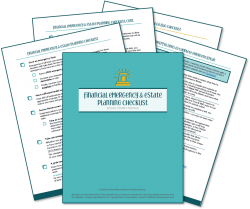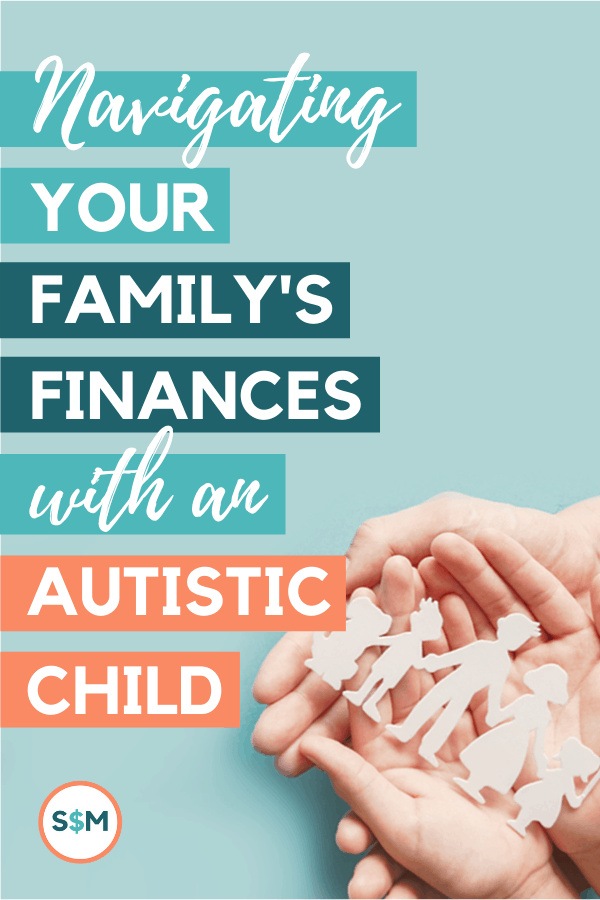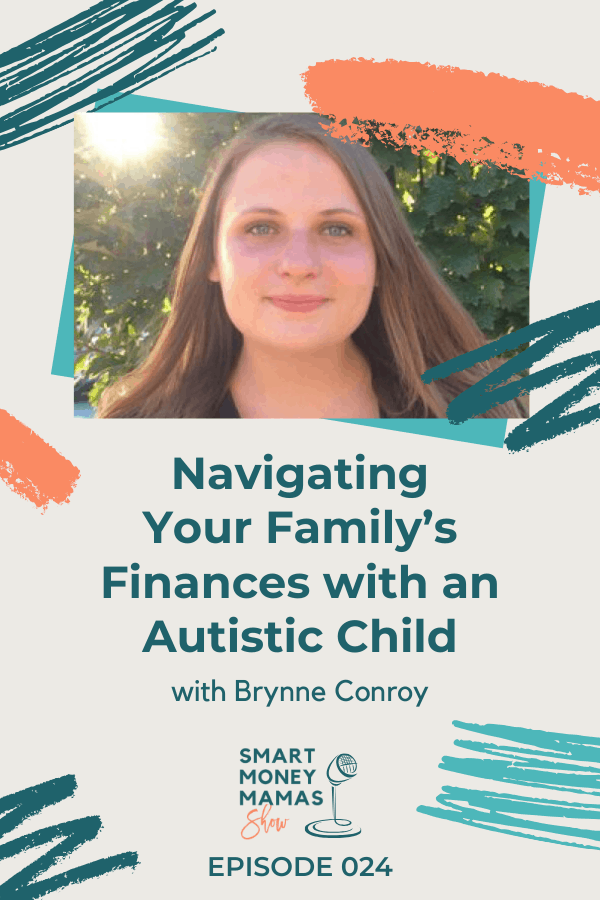
Navigating Your Family’s Finances with an Autistic Child
- April 16, 2020
- by Chelsea
Why You've Got to Listen to This Episode...
In this episode, Brynne Conroy of Femme Frugality shares her extensive knowledge on how to navigate the world of personal finances with an autistic child. She’ll cover how to help your child get the resources they need, how to budget, plan, and save for expenses associated with a special needs child, how to prepare your child to advocate for themselves when they enter adulthood, and some insight on how to support special needs children and their families.
Access Brynne’s free Medicaid & Autistic Children: A State-By-State Guide for details on what benefits your child may be eligible for!
Moments You Don't Want to Miss
- [11:17] How you can advocate for your child during the diagnosis process and what you can do to help them get the resources they need
- [21:15] What ABLE accounts do and how you can use them
- [25:28] Why having a special needs trust is better than just naming your child as a beneficiary of an insurance policy
- [30:00] How you can budget, plan, and save for what your upcoming expenses may be with a special needs child
- [34:39] How to prepare your children to advocate for themselves in seeking a career advice for them
- [40:58] Chelsea’s Top Takeaways
Are You Protecting What Matters Most?

Grab our free Financial Emergency & Estate Planning Checklist to make sure you’re prepared for anything life may throw at you!
Key Takeaways on Navigating Your Family’s Finances with an Autistic Child
Brynne shared so much helpful information in this episode! We’ve summarized our top three takeaways to help you focus in on some of the most important pieces.
1 - There are Financial Resources Available for Parents of Kids with Special Needs
Even if you don’t believe you’ll qualify for programs such as Medicaid, Supplemental Security Income (SSI), or state and local programs, advocate for your child to get a proper diagnosis and apply as soon as possible.
Diagnoses can get harder to come by as kids get older, some programs require kids to have been diagnosed by a certain age and the waiting time to see the right doctors could be months.
If you don’t qualify for SSI, this is still the method through which the government will recognize your child as special needs, making it possible to apply for Medicaid and other programs. Medicaid can even act as a secondary insurance, to cover therapies and treatments your primary insurance doesn’t cover.
These medical costs add up and getting the help you’re eligible for can free up funds to prepare for your and your children’s future.
Download Brynne’s free Medicaid & Autistic Children: A State-By-State Guide for details on what benefits your child may be eligible for and learn how to apply.
2 - If Your Child Qualifies for an ABLE Account, Take Advantage
ABLE accounts work like 529 plans, meaning that the contributions go in post-tax but the investments in the account grow tax free and are not taxable upon withdrawal.
But while you can only use a 529 plan for higher education, ABLE accounts can be used for living expenses, medical costs, and anything your child might need.
In addition, the first $100,000 in an ABLE account is excluded from the SSI income test and is also excluded from a number of other benefit asset tests in most states, like food stamps.
The sooner you can start saving in one of these accounts, the longer the power of compound growth has to do it’s work – creating more dollars for your child’s future care.
You can learn more about ABLE accounts from the National Resource Center.
3 - Look for Support
Find local groups and advocacy organizations where you can find community and your child can interact with people of all ages living with their disability.
Ideally, advocacy groups should be run by those living with the disability, not by caretakers.
These are places where you can ask questions about the financial and other resources available to you and get support. You’ll also discover more about what programs and initiatives those communities are pushing for and how you can help create a better and more inclusive world for your child.
Brynne recommends organizations like Autistic Advocacy and National Association of the Deaf.
Community is important. You’re not alone in feeling overwhelmed or like you’re learning a new language – around treatment, IEPs, financial resources, and more. There are people to lean on and you can do this.
Links & Resources Mentioned
- The Feminist Financial Handbook by Brynne Conroy
- Free Medicaid & Autistic Children: State-by-State Guide - Femme Frugality
- Autistic Self Advocacy Network | Nothing About Us Without Us
- National Association of the Deaf - NAD
- What are ABLE Accounts? from the National Resource Center
- Financial Planning for a Child with Special Needs: A Guide | Bestow
- Financial Emergency Preparedness Checklist - Free Download

Connect with Brynne
Brynne Conroy is the owner and creator of Femme Frugality and the author of The Feminist Financial Handbook, which has been called “revolutionary” and “a unicorn among finance books.” Her writing has been featured in respected print and online publications and focuses on disability, the toxic nature of the helper mindset, the financial impacts on women’s salaries and careers when they have a disabled child, forced poverty, asset tests, and ABLE accounts. Brynne also publishes an annually-updated guide for parents of Autistic children, walking them through Medicaid eligibility in all 50 states and Washington, D.C.
Other Ways to Enjoy This Podcast
Have You Subscribed Yet, Mama?
Are you subscribed to the Smart Money Mamas podcast? If you’re not, I want to encourage you to head over to Apple Podcasts (or wherever you listen to your podcasts) and subscribe! I release episodes twice and week and as a subscriber, you’ll be notified right away so you can take checking the feed for new content off your mental to-do list.
Click here to subscribe on Apple Podcasts, Google Podcasts, or Spotify!







